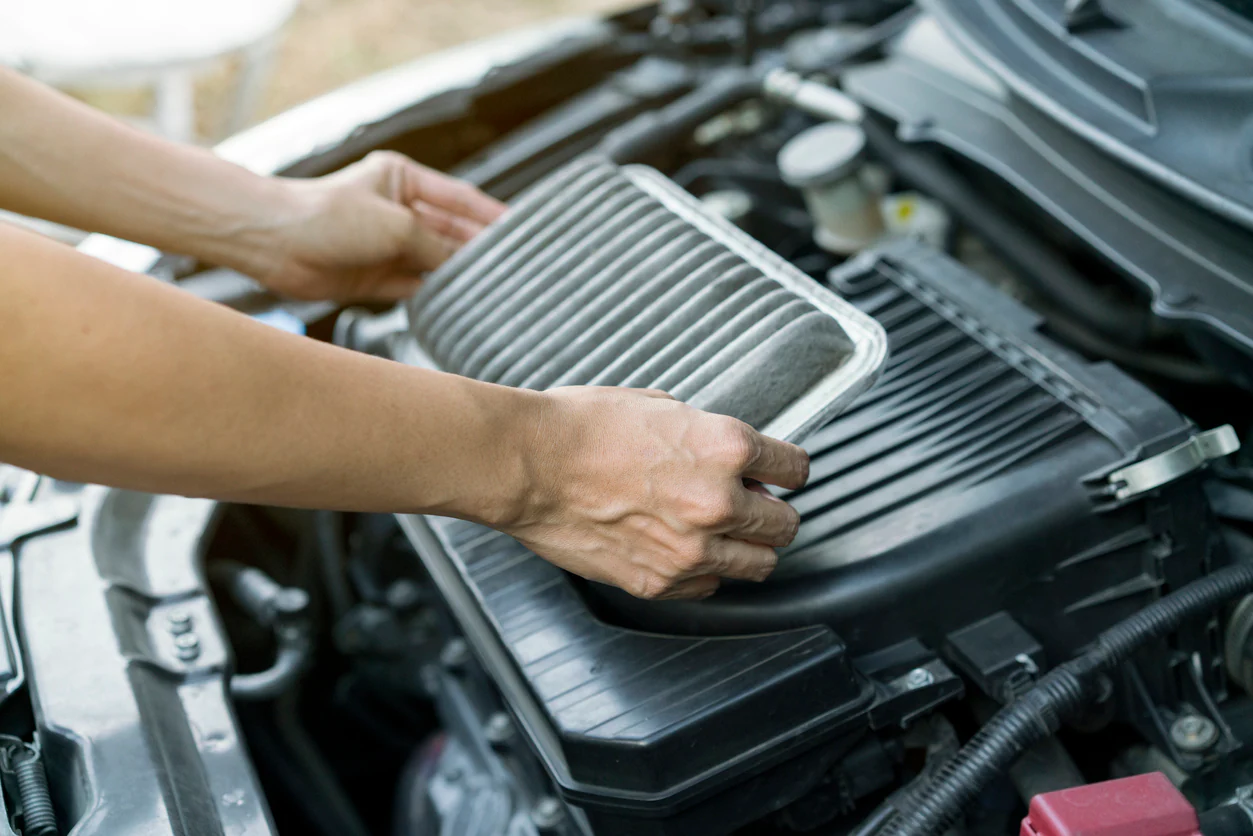No matter what type of vehicle you drive—from luxury European automobiles to domestic cars and trucks to hybrids and electrics—there will certain types of filters that require routine inspection and maintenance. Not all filters are the same and they come in many different sizes and configurations. When attempting to replace any filter yourself, always make sure you know what you are doing and use the proper type of filter for your car.
Here are the four main vehicle filters every car owner should know about:
1. Engine Oil Filter
When you get a standard oil change, a key part of the process is replacing the old oil filter with a new one (in addition to changing out the motor oil itself). The oil filter helps keeps the oil that is running through the engine clean and free of contaminants. If the oil isn’t pure, the engine won’t run as smoothly and it can lead to significant engine damage. Oil changes should happen every 3,000-6,000 miles depending on the make, model, age and engine type. Some newer vehicles may only need an oil and filter change every 10,000 miles.
2. Engine Air Filter
Most cars have an air intake system that provides fresh air and oxygen to the engine. The oxygen is vital to the internal combustion process. An air filter helps keep the air going into the engine clean. As you might expect, the filters can get dirty and clogged over time. This keeps the proper amount of air from entering the combustion chamber. They can also crack and develop holes if they get really old (especially in extra dry or extra wet environments), which can lead to contaminants like dirt, debris and grease getting into the engine and causing problems. Most engine air filters will need to be replaced every 15,000-30,000 miles depending on a variety of factors. It’s good to get it checked with each service visit and replaced as needed.
3. Fuel Filter
Electric vehicle owners don’t need to worry about this one, but any vehicle with a fuel system will have a fuel filter that filters contaminants out of the fuel supply as it is fed into the engine for combustion. If the fuel filter is clogged, old or damaged in anyway, it won’t be good for your engine! A standard fuel system service will involve cleaning the fuel lines and replacing the fuel filter.
4. Cabin Air Filter
This filter won’t necessarily affect the performance of your car in any way. However, it’s good for your health and comfort inside the vehicle. It is connected to the vents and air conditioning system to filter out dirt, dust and other nasty stuff that you don’t really want to breathe while driving. It doesn’t need to be replaced nearly as often as the engine air filter, but it should be checked regularly and replaced as needed. If you notice funky smells or it seems like you are getting a lot of dust coming through the vents, then it’s probably time to change out your cabin air filter.

